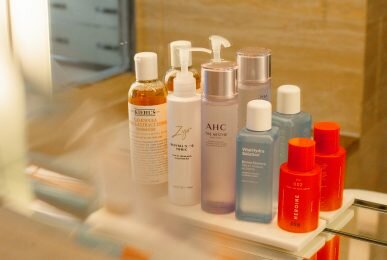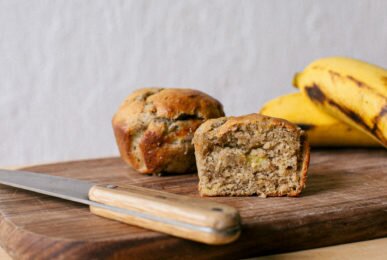For our first Ask Us Anything we picked the question: Are shampoos with SLS really that bad? (Lina)
Thank you Lina for filling our ask box! Here’s your answer with lots of love, from us.
What Is SLS?
SLS stands for Sodium Lauryl Sulphate. It is a common chemical found in a plethora of beauty products and is one of the two most popular ingredients in shampoo (along with Sodium Laureth Sulfate). SLS is a “surfactant”, in gist it lowers the surface tension between ingredients. This makes SLS an excellent cleansing and foaming agent — it is what helps our shampoos lather up!
What’s Up With SLS’s Terrible Reputation?
In recent years, there has been fierce debate in the hair care industry over the safety of sulphates — especially SLS. Some reports have claimed a link between SLS & skin irritation, eye irritation, inflammatory skin reactions, dermatitis…and even cancer.
Yikes! How True Is This?
Before you mass-dump all your SLS-shampoos, let’s do a fact check.
Firstly, there remains insufficient scientific evidence to suggest that SLS is conclusively carcinogenic. Simply put, the rumours that sulphates (especially SLS) cause cancer are incorrect.
However, it is true that sulphates are strong cleansing agents that can strip natural oils from the scalp and hair. This makes SLS less suitable for certain people, and under certain circumstances:
- People with sensitive scalp, eczema or rosacea may be less tolerant to sulphates and could experience scalp irritation from SLS-shampoos. Signs of irritation to watch out for include scalp dryness, itching and redness.
- SLS-shampoos can also be too harsh on dry, delicate, damaged and chemically processed hair e.g. rebonded, permed hair. Sulphates are also known to cause frizz — so those with especially frizzy hair may want to stay away from SLS-shampoos too!
- Some research have found that SLS-shampoos can strip the colour and moisture from dyed hair. Hence, switching to a SLS-free shampoo could help to prolong and protect your colour treatment!
At the same time, some people can benefit from the deep cleansing properties of sulphates and find SLS-shampoos highly effective. For those who suffer from oily hair, scalp and dandruff, SLS-shampoos may be the most efficient way to absorb excess oil from the scalp and keep dandruff at bay. Remember: SLS-free shampoos will not lather up like SLS-shampoos. This means you would need to work your SLS-free shampoo more rigorously in order to properly cleanse your scalp!
A Word of Caution (Sort-Of).
All things status quo, SLS-shampoos can irritate a normal scalp if it is left on for too long a period of time. Say…if you leave your SLS-shampoo to marinate on your head for a day or two!
However, this shouldn’t be too much of a concern considering that shampoos are rinse-off products. This means that contact time with SLS and other sulphates are brief, and with proper rinsing there should be extremely little SLS left behind on your skin/scalp.
Nonetheless, here are some useful tips to keep in mind while using SLS-shampoos (or even SLS-free shampoos) for better hair/scalp health:
- Pick a shampoo that suits your hair type. SLS or non-SLS are just one of the many things to consider! Know your hair type and select the best shampoo for it.
- Do not over-wash your hair. SLS or non-SLS, shampooing excessively can still dry out your hair and scalp. Again, know your hair type and make sure you only shampoo as often as you need to!
- Always use a conditioner. Regardless, shampooing your hair will remove dirt and natural oils. Follow-up with a conditioner to replenish and protect moisture!
- Use less heat on your hair. Heated tools such as curling irons, straightening irons and hair dryers can damage your hair with excessive use. Always remember to use a heat protectant!
- Use hair SPF. Overexposure to sunlight can (like heat) dry out, lighten and make hair more fragile. The next time you stock up on SPF products, don’t forget include UV protection for your tresses too!
The Conclusion?
It remains that most people can use SLS-shampoo without experiencing skin/scalp irritation. Although, you could always try a SLS-free shampoo and see what you think! Or, simply mix in a SLS-free shampoo into your haircare routine for whenever your hair needs it.
But, if your hair and scalp type falls into the less-tolerant-of-sulphates category and you suspect your SLS-shampoo has been causing irritation, maybe it’s time to seriously consider ditching sulphates for a SLS-free shampoo!
A personal note: As someone who suffered from dry and frizzy hair for many years, switching to a SLS-free shampoo finally helped to improve my hair texture. It has been two years since I stopped using sulphates in my haircare routine, while my hair still looks nothing like the soft and sleek tresses in advertisements, it has definitely become far more manageable! I guess ditching SLS was the game changer for my hair, but what about you? Tell us what you think in the comments below (we want to hear all about it)!
—
Have a question you’d like us to answer? Ask Us Anything (the Ask Box is at the bottom of our Home page), we pick one question every two weeks and answer it the best we can. Fire away!
Take care,
Melisa


 via giphy
via giphy via giphy
via giphy










